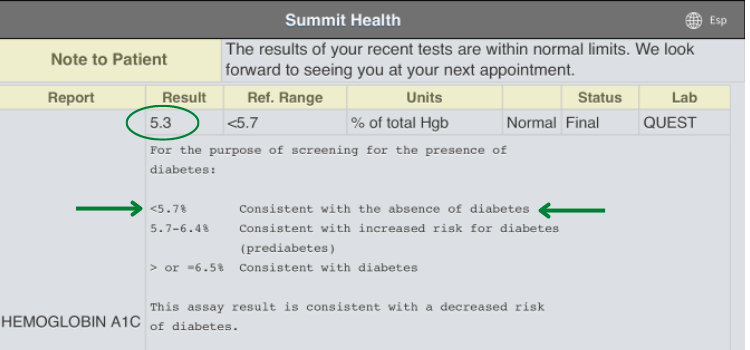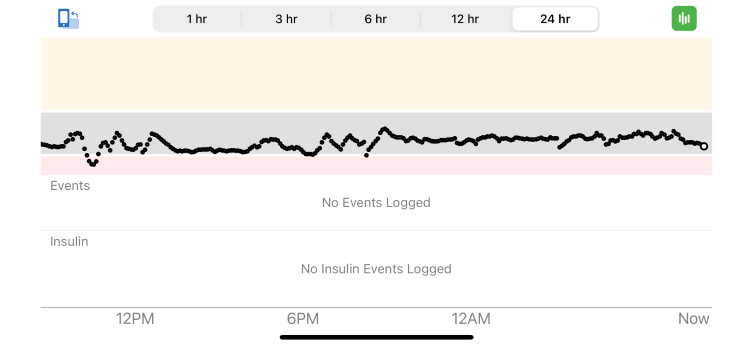Success Story - Type 1 Diabetes
- Jitka Burger

- Sep 12, 2024
- 6 min read
Updated: Dec 7, 2024
Nastassja’s Type 1 Diabetes Success Story
Written by Nastassja on January 19, 2022

"I can say with certainty that I would never go back to eating and living any other way. I’m incredibly thankful that Jitka introduced me to this lifestyle since it has restored my health in a way that I did not think was possible."
Living with Type 1 Diabetes
I had lived my entire life under the assumption that I was a fairly healthy person – I walked over 5 miles a day, rarely ate fast food, and could count the times I have consumed a sip of soda on one hand. So, when I was first diagnosed with type 1 diabetes, I felt incredibly betrayed and hopeless.
At only 18 years old I began to experience health issues no one my age was struggling with; my vision became incredibly blurry, I had no energy, and I experienced migraine headaches.

After my 19th birthday my symptoms became much more severe. I needed to urinate so frequently that I would wake up over 12 times during the night. I would go to sleep at night clutching a gallon of water that I would chug while half asleep. I developed 3 UTIs and was hospitalized with a kidney infection within 3 months. I was so fatigued that I could not stand up in the shower or hold my arms up to wash my hair. I truly believed that at only 19 years old I was going to die.
I was diagnosed with type 1 diabetes and was immediately instructed to avoid all carbohydrates in order to manage my blood sugar. I was prescribed 15 units of Lantus (long-acting insulin) and 20 units of Humalog (mealtime insulin) each day. I tried my best to eat a “healthy” diet based on my doctor’s recommendations; avocado and egg whites for breakfast, turkey meatballs with sauteed spinach for lunch, mushrooms and salad and salmon for dinner.
I felt so sluggish all the time. I couldn’t walk far from my house without feeling like my body would collapse. My doctors told me I was doing well and should just eat less carbs to lower my A1C down from 7.4.
I thought this was how my life with type 1 diabetes was going to have to be. I saw endocrinologists, internists, and holistic doctors and each doctor sent me off with instructions to limit my carbs and follow diets such as a ketogenic diet, a low FODMAP diet, and the Specific Carb Diet.
While technically my blood sugar was sort of under control, I was unsatisfied with each diet since my health was clearly deteriorating; my hair was falling out in clumps, I felt depressed and had no energy, and I had developed anemia.
Jitka offered me an alternative – a high carb, low fat plant-based diet. Jitka is incredibly knowledgeable and compassionate and helped me to understand that while I will need insulin injections daily for the rest of my life, I can heal my body and take most of the guesswork and uncertainty out of type 1 diabetes.

I remember the first day I met with Jitka, she helped me analyze my food diary to show me which foods were harming my body, causing blood sugar spikes, and preventing me from healing. To my surprise, it was not the fruit and pasta that was causing my blood sugar to spike – it was the eggs and olive oil and salmon!
I remember how scary the first few weeks were – I was so scared eat carbs because I was misinformed on how carbs affect blood sugar and had experienced my blood sugar spiking to nearly 300 from a few tablespoons of oatmeal.
However, within the first week my blood sugar would spike less and less from each meal. For example, a single banana used to bring my blood sugar to around 280mg/dl and I had difficulty with the bolus and would wind up low an hour later.

By the end of the first few weeks my blood sugar would spike to around 180mg/dl and would come down as my insulin peaked. Now my blood sugar goes up gradually to about 140mg/dl. I don’t even always take insulin for a banana anymore and if I do it's only 0.5u or 1 unit of Humalog.
It may seem difficult to believe, but you genuinely can eat more carbs with less insulin if you eat correctly. Jitka recommended me the book Mastering Diabetes and I found that this really helped educate me on what causes diabetes and spikes blood sugar.

However, it is definitely difficult to transition to a whole-foods plant-based diet when you don’t know what you are doing and Jitka’s kindness, guidance, and experience helped ease the transition to my new lifestyle.
My latest A1C was 5.3 with my blood sugars 90% in range. My blood work was outstanding. I no longer have anemia. I have more energy. My hair and nails are stronger. My skin has cleared up. I feel less burdened by my diagnosis.
I have met people who legitimately cannot believe how stable my blood sugar is now that I eat 100-300g of carbs per meal. Without Jitka, I don’t think I would believe it either. Type 1 diabetes can certainly be frustrating, and I still have days where my sugar is out of control due to illness, stress, travel, or bad luck. However, most of the time my blood sugar control is tight and when I am eating my best, I can go hours without micromanaging my blood sugar and stay in range.
Additionally, I inject at a 1 to 30 or 1 to 40 insulin to carb ratio now and take anywhere from 6-15u daily of Lantus for my basal insulin. On average, I take 15-20u total per day to eat about 300-600g of carbs.
I can say with certainty that I would never go back to eating and living any other way. I’m incredibly thankful that Jitka introduced me to this lifestyle since it has restored my health in a way that I did not think was possible.

Nastassja’s Hemoglobin A1C “is consistent with a decreased risk of diabetes”!
Nastassja's reflections after four years on a high-carb, high-fiber, low-fat, whole-foods, plant-based (vegan) diet:
"Living with type 1 diabetes presents its challenges, but I firmly believe it's a huge misconception that you can't enjoy carbs. Personally, I've encountered no issues consuming substantial amounts of carbs. Even now, having met other type 1 diabetics, I'm confident I require significantly less insulin than many of them, despite consuming more carbs. As long as I avoid fatty or fried foods, I don't think eating large amounts of carbs necessitates much insulin at all! Without your recommendation, I'm not sure I would have had the courage to explore carb-rich foods to this extent.
It's genuinely a major annoyance for me now when I hear people advising against carbs or sugar, particularly considering it often comes from individuals who are themselves pre-diabetic or clearly unhealthy. I hope others can glean something valuable from your post.
I distinctly remember feeling apprehensive when you first suggested I incorporate more carbs into my diet. Even my original doctor, who, frankly, wasn't the best (fortunately, I'm now seeing a much better one), recommended a low-carb approach. I truly can't express enough gratitude for your advice. I've been curious about veganism from an animal rights standpoint for so long, but I felt uncertain about how to eat healthy vegan meals. Thanks to you transitioning to a vegan lifestyle was surprisingly easy for me, and I'm absolutely committed to sticking with it."
-Nastassja
Note:
I began working with Nastassja in December 2020, just days before her Type 1 Diabetes diagnosis. I remember how overwhelmed she felt when I suggested that her symptoms likely pointed to this condition and how she dreaded daily insulin injections. I explained that, although her pancreas could no longer produce insulin, these injections would be lifesaving. Along with a low-fat, whole food, plant-based diet and a healthy lifestyle, she could lead a full, healthy life.
Though this article was written in January 2022, it only took Nastassja a few months to adopt routines that significantly reduced her insulin needs. Now, four years later, she’s thriving, fully embracing her diet and lifestyle, with insulin management becoming second nature.
If you or someone you know is dealing with this condition, please share my website so they can learn how to manage and, ideally, put their disease into remission.
Thank you,
Jitka







